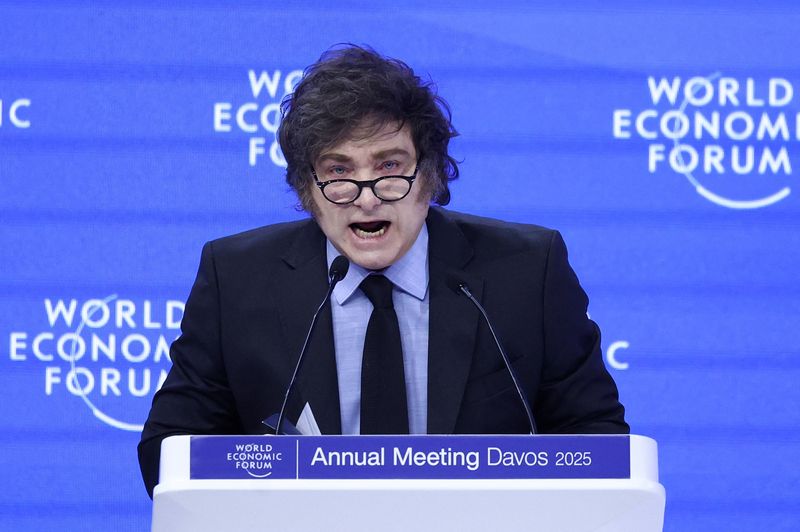
By Luciana Magalhaes
SAO PAULO (Reuters) – Brazilian companies are scoping out acquisition targets in Argentina, while beefing up staff and stores in a cautious bet on President Javier Milei’s aggressive economic reforms that are beginning to stabilize the crisis-stricken economy.
Brazilian firms, including consumer goods, services, oil and tech, told Reuters they are looking to launch new ventures or drafting expansion plans in Argentina, which is emerging from years of economic chaos that had deterred investment.
Milei’s tough austerity measures have helped tamp down triple-digit inflation, overturn a deep deficit and rebuild reserves, boosting investor confidence. But the nation is still digging out of recession, while capital controls complicate business.
“Argentina is back on the radar,” said Rodrigo Stefanini, CEO of Latin American operations at Stefanini Group, a Brazilian multinational technology company with global revenues projected to have reached some 8 billion reais ($1.4 billion) last year.
The company’s annual sales jumped 15% in Argentina last year and its workforce grew 10% to around 1,500 people. The CEO told Reuters the firm is looking at Argentine acquisition targets for the first time since entering the country in 1996, despite an economic outlook that remains uncertain.
“You don’t want to be the first to arrive at the party, because you don’t know if it will be a hit. But you also don’t want to be the last, because the drinks may be finished,” Stefanini said with a smile.
“It’s time to take advantage of it, before the arrival of the Chinese and the Americans.”
Proximity and the perks of the regional Mercosur trade bloc have often put Brazilian companies ahead of the curve in riding the regular booms and busts of the Argentine economy, although several firms have also been burned.
Around 150 major Brazilian firms have maintained a steady presence in Argentina, although some of those have scaled back operations over the years, according to the Sao Paulo-based Brazil-Argentina Chamber of Commerce.
Federico Servideo, the chamber’s president, said Brazilian companies are watching economic trends and policy changes – potentially including a loosening of currency controls – before ramping up capital investments in the next 12-36 months.
“There’s indeed a reversal in expectations from Brazilian investors,” said Servideo.
FULL RETURN TO ARGENTINA?
Brazil’s state-run oil firm Petrobras is considering a new bet on Argentina after signing a memorandum of understanding with Argentine peer YPF last September to explore joint investments in exploration and production.